Tips for new vegans
When you first go vegan or try to go vegan, it can seem daunting and impossible. Here are some tips to help you go and stay vegan. Tips to help you navigate your way through the hardest parts in the beginning. Learn what the number one easiest way to go vegan is!
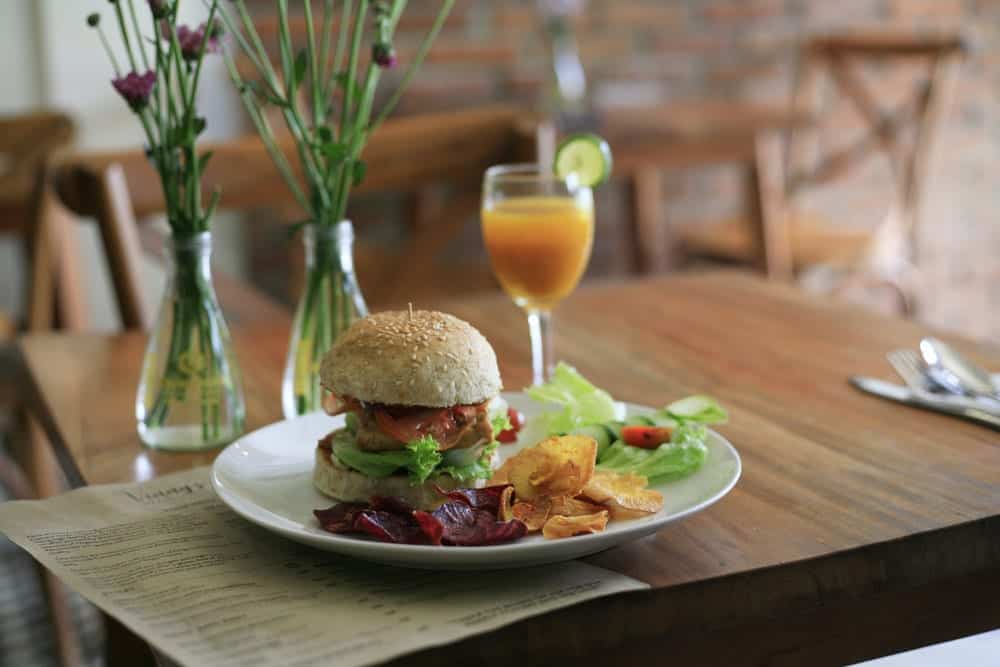
1. Make a deeper connection
The number one way to make going vegan easier is to make an ethical and environmental connection. Once you make that connection you won't have to use as much will-power to stop eating animal products.
Watch slaughter house footage. I know it’s extremely hard but I think that it’s absolutely necessary. Watch documentaries (I’ll link some below).
Follow vegan YouTubers (Sweet potato soul, Mic the vegan, Pick up limes) Read books on veganism. Become an activist with Anonymous for the voiceless.
Veganism is not a diet. It’s an ethical decision that informs what you eat, wear and buy.
We have been conditioned since birth to think that eating animal products is normal, natural and necessary.
This is reinforced DAILY through media, ads and the easy accessibility to animal products.
You must educate yourself until you counter all of that brain-washing. The goal is to re-wire your brain to no longer see animal products as food, but as cruelty, suffering and destructive to the environment.
Learn to see behind the glossy ads. Learn why grass fed, free range and organic labels are bullshit and still cause unnecessary suffering (because we still see them as products and they all still get slaughtered at a young age in the end).
This takes time and that's ok. Just keep educating yourself.
If you're feeling like you're missing out by not eating meat instead of seeing it as an easy way to not participate in cruelty, you still have work to do. Here are some recommendations to get started:
Earthlings - Animal welfare
Dominion- Animal welfare
Cowspiracy - Environment - Available in full on Netflix
What the health and Forks over knives - Health - Available in full on Netflix
Nutrition Facts - Will soy give me breast cancer, what foods fight cancer the best, are vegans more susceptible to nutritional deficiencies? These and other nutrition questions are answered in easy to digest, short videos on this fabulous, science-packed channel.
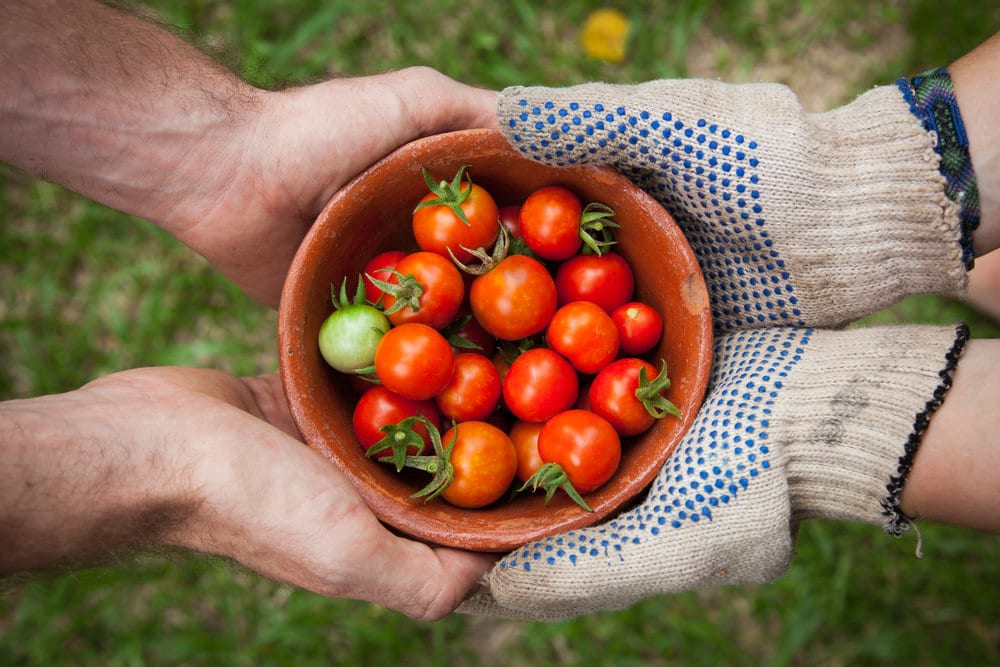
2. Stay connected and find community
With the constant reinforcement through ads, social interactions and media, it’s dangerously easy to lose connection to the ethics of veganism. We see this quite a lot with people quitting veganism.
We are social creatures and the more we soak up societies’ beliefs, without countering them once in a while, we will inevitably slip back into this way of thinking.
Make sure to watch some sort of vegan ethical video or read a book about veganism at least a few times a year. Your ethics shouldn’t be neglected. Keep them refreshed and informed.
We are constantly surrounded by the normalization of meat-eating and that can make you feel lonely.
Find a community of vegans, whether it be online, or in person. Follow vegan youtube channels, join a facebook recipe group, start getting involved in activism.
Becoming an activist is an amazing way of staying connected to vegan ethics.
What you're doing is right and makes a difference and it's good to be reminded and have that reinforced by a community.
3. Don’t have too high of expectations
The #1 reason people go vegan is for health reasons, but the only way you're going to stay vegan is if you eventually make a deeper connection.
I have seen so many people go back to eating animal products because they treat it as a gateway to perfect health and neglect the ethics.
They then become disappointed if their health doesn’t become perfect and they blame any tiny ailment on their vegan diet.
While it is true that eating a WHOLE FOODS BALANCED PLANT BASED DIET is extremely healthy and is the only diet to be shown to reverse heart disease and diabetes, it’s not a miracle diet.
Vegans can still get sick. Having too high of expectations will make you extremely disappointed.
4. Eat vegan junk food when cravings hit
When you first go vegan, ease into it with meat and dairy alternatives when you crave junk food or meat.
There is a vegan alternative for EVERYTHING!
You never have to sacrifice taste or satisfaction with a vegan diet.
Keep yourself happy and satisfied on a vegan diet however you need to. It will help you to stick with it in the long run.
Whole, plant foods keep you healthy, but vegan junk foods keep you vegan.
Try not to become too obsessive and strict about eating too healthy in the beginning.
Aim for a well balanced vegan diet that is made up mostly of whole plant foods. Eat processed vegan mock meats when cravings hit.
If you go from a standard american diet full of fat, processed foods and salt and switch overnight to raw veggies and fruit, you're going to be completely unsatisfied.
Plant-based foods also have a lot more fiber and less calories, so the same old mentality of portion control does not go well if you apply that to veganism. If you’re hungry, eat a little more.
Make sure that you're eating enough, or else you may feel tired and weak. People often mistake this feeling for a "lack of protein” and nutrients but it's just lack of calories.
5. Learn the basics of vegan nutrition and take supplements
There’s plenty of information out there when it comes to nutrition so I’ll keep it simple.
I’ve noticed that the people who maintain a vegan lifestyle are the ones who have a balanced diet and don’t take it to too many extremes.
A balanced vegan diet includes all the macro nutrients: fat, protein and carbs. This includes beans, nuts, seeds, nut butters, whole plant foods, whole starches and Iodine containing foods like seaweed (dulse or kelp sprinkled on your salad or nori that veggie sushi is rolled in) or salt with iodine.
Don’t try to be a health perfectionist and obsess about every little thing. Keep it balanced.
It’s also important to take your essential vegan supplements - B12 and D3. Almost everyone is deficient in these nutrients, so it’s not only vegans that need to take them.
You can get these from taking a supplement or drinking enriched plant milks. Most people get their D3 from enriched milk anyway.
Try to avoid these extreme vegan diets: water fasting, juice fasting, eating only fruit, eating only raw food and eating a high carb low fat diet.
Here are some great videos and books that sum up what I consider a healthy and balanced vegan diet:
Pick Up Limes - Vegan Nutrition Basics
Mic the vegan - How to prevent deficiencies on a vegan diet
Nutrition Facts - Fantastic Youtube channel that analysis all of the scientific research on food and health and breaks it down for you to understand
How not to die - Book by Dr. Greger. Also get his FREE Daily Dozen app and tick off all of your essential daily foods
6. Veganize your favorites and go slow
Never think of it as "giving up" your favorite foods. You're not giving anything up, you're substituting and you’re adding new foods.
When you first go vegan, keep things as easy as possible. Instead of learning to cook too many new dishes and overwhelming yourself, just veganize your favorite dishes.
Sub animal meat for Beyond Meat or Gardein, sub milk and butter for the vegan versions and sub cheese for Chao or Follow your Heart vegan cheeses (those are my favorite two at the moment).
Take your time and gradually substitute foods.
Try a few different brands if you don't like one. There are so many now.
If you want to stay away from the processed vegan foods, here are some cheaper, whole-foods alternatives to animal products:
Green Lentils ~ ground beef - I use these in tacos and pasta
Mushrooms ~ red meat or chicken
Black Beans ~ ground beef in tacos or lasagna
Ground flax seeds ~ egg baking substitute
Tofu ~ meat and egg substitute
6. Adjust your diet to make it work for you
There are many different ways to eat vegan. If you find that eating a certain way isn’t making you feel great, change up your diet.
Some people thrive on more protein, others thrive on tons of greens and fresh fruits, others thrive on a bit more whole plant fats. Try out the ration of fat, protein and carbs that work for you.
8. Learn the tricks of eating in restaurants
When you're looking for vegan options on the road, get the Happy cow and Vegan Express apps. These apps show you vegan restaurants (Happy Cow) as well as how to order vegan at popular chains (Vegan Express).
You can also use Yelp and type in vegetarian or vegan. If they have vegetarian options, chances are you can make it vegan by just asking them to omit cheese or dairy.
Generally speaking, international restaurants are easier to order at: Mexican, Chinese, Thai, Indian, African and many more.
Get creative with the sides. If you see that they offer a bunch of vegan friendly sides like steamed veggies, baked potatoes, rice, beans and whatnot, you can mix and match to make your own dish. Just ask them to leave the dairy products off and cook in olive oil instead.
Check out my article Vegan fast food options you didn’t even know existed to give you ideas on how to eat vegan at common fast food chains like Taco bell, Burger king, Qdoba, Chipotle, Starbucks and more!
And there you have it! I hope that these tips will help you to stay strong on your vegan journey. If you have any questions, don’t hesitate to comment below.
Sharing is caring so share this with someone who is just starting out their vegan journey.
Check out these posts about living a vegan lifestyle
Vegan Cheesecake Factory options
- How to go vegan again
- Tips for new vegans during the holidays
- How to stop eating cheese without losing your mind
Loved this article? Pin it to your favorite pinterest board.
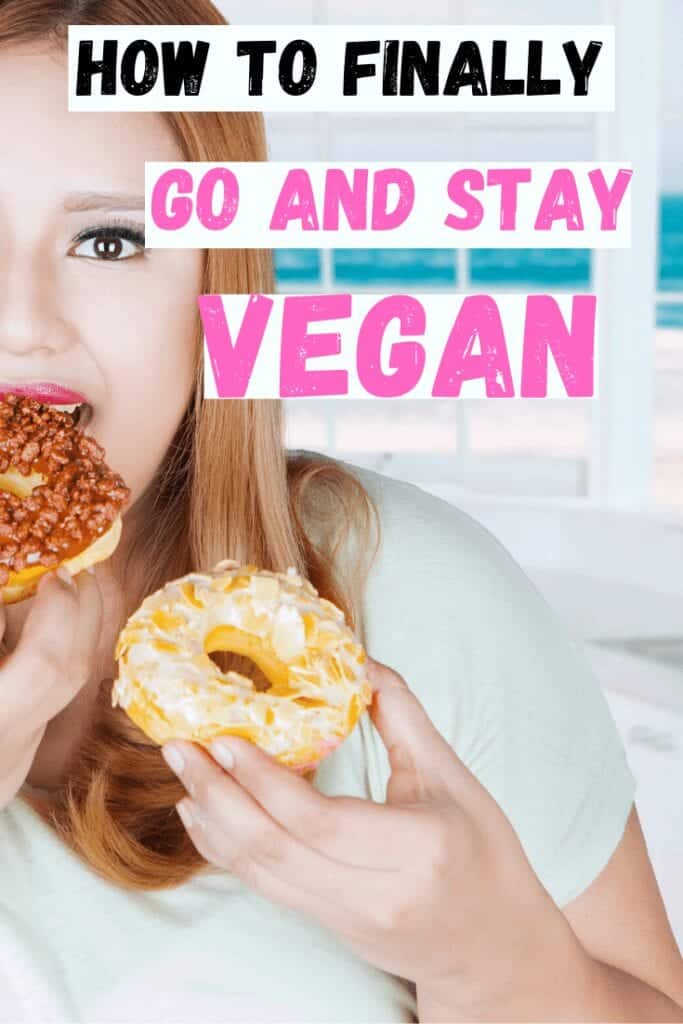



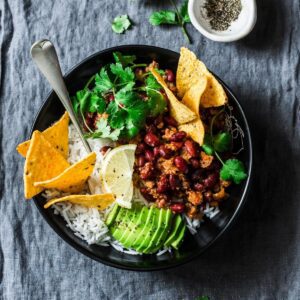
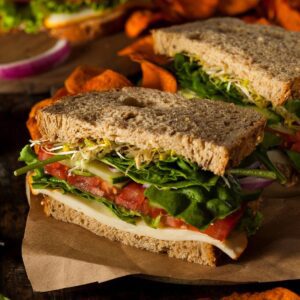



Leave a Reply